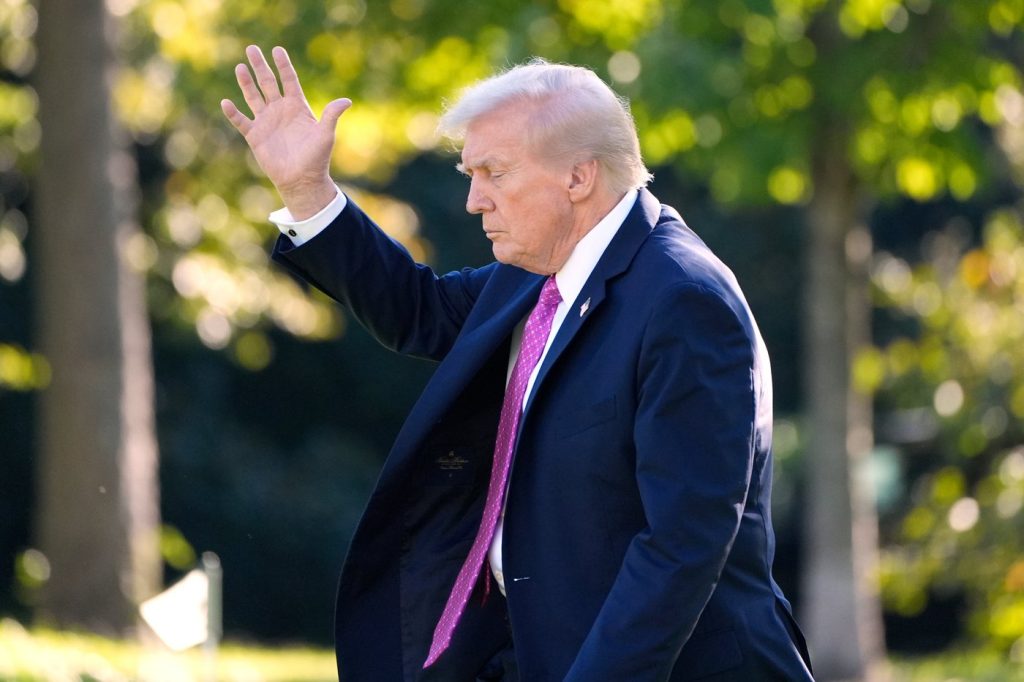On October 17, 2025, U.S. President Donald Trump implemented a significant trade policy by signing a proclamation that imposes a 25% tariff on imported medium- and heavy-duty trucks. This measure is set to take effect on November 1, and notably includes an exemption for vehicles that align with the Canada-U.S.-Mexico Agreement (CUSMA). Under this agreement, trucks that comply will only be subject to tariffs on the non-American parts of their construction.
A crucial aspect of this new tariff regulation is that it currently does not affect auto parts deemed compliant under the North American trade agreement. According to a fact sheet released by the White House, this exception will persist until Commerce Secretary Howard Lutnick, along with U.S. Customs and Border Protection, develops a systematic approach to apply tariffs on the non-U.S. content of these auto parts. Additionally, a 10% tariff will be instituted on buses and motorcoaches, further impacting the automotive sector.
In an effort to mitigate the financial burden these duties may impose on domestic manufacturers, the administration has also introduced a tariff discount for companies that produce and sell completed automobiles in the United States. This strategic adjustment is designed to alleviate some of the negative effects of the tariffs on imported parts for these companies.
Utilizing Section 232 of the Trade Expansion Act of 1962, Trump’s latest tariff measures mirror previous tariffs on smaller automobiles imposed earlier in the year. These new levies are part of an expanding list of sector-specific tariffs that already includes those on steel, aluminum, copper, and lumber. The proclamation released on Friday offers some reprieve from the existing 50% tariffs on steel and aluminum imports from Canada and Mexico. An unnamed White House official noted that Lutnick has the authority to adjust these duties to a minimum of 25% for companies in Canada and Mexico that invest in U.S. steel and aluminum industries, but this relief is specifically restricted to materials used in automotive production.
William Pellerin, a trade lawyer at McMillan LLP, remarked that this decision appears to further encourage businesses to relocate production facilities to the United States, with the reduced tariffs on steel and aluminum acting as an incentive. However, it remains uncertain when or if the lowered tariff rates for steel and aluminum will come into effect.
Previously, Trump had indicated the necessity of these heavy truck tariffs, asserting that they would protect American industry from “unfair outside competition.” The administration highlighted that this move is pivotal for maintaining America’s manufacturing capabilities for medium- and heavy-duty trucks, which, according to the White House, are vital for national military readiness, emergency response, and economic infrastructure.
However, the American Trucking Association has expressed significant opposition to these newly imposed duties, cautioning that they could result in increased prices within an industry that is already struggling under existing steel and aluminum tariffs. In a submission made to the government in May, the trucking industry pointed out that it operates on narrow profit margins and has been experiencing a freight recession characterized by declining rates and rising operational costs.
The trucking lobby furthermore contends that the importation of heavy-duty trucks does not constitute a national security threat, a claim outlined by the administration as a justification for the tariffs. The North American automotive sector is intricately connected, with many trucks previously manufactured in the United States using parts sourced from abroad. Consequently, the ramifications of these tariffs are anticipated to be most acutely felt in Mexico, even though certain medium- and heavy-duty vehicle manufacturers maintain facilities in Canada. Notable examples include Paccar, a large truck manufacturer with operations in Canada, which announced employee layoffs at its Ste-Thérèse, Quebec plant in August.












